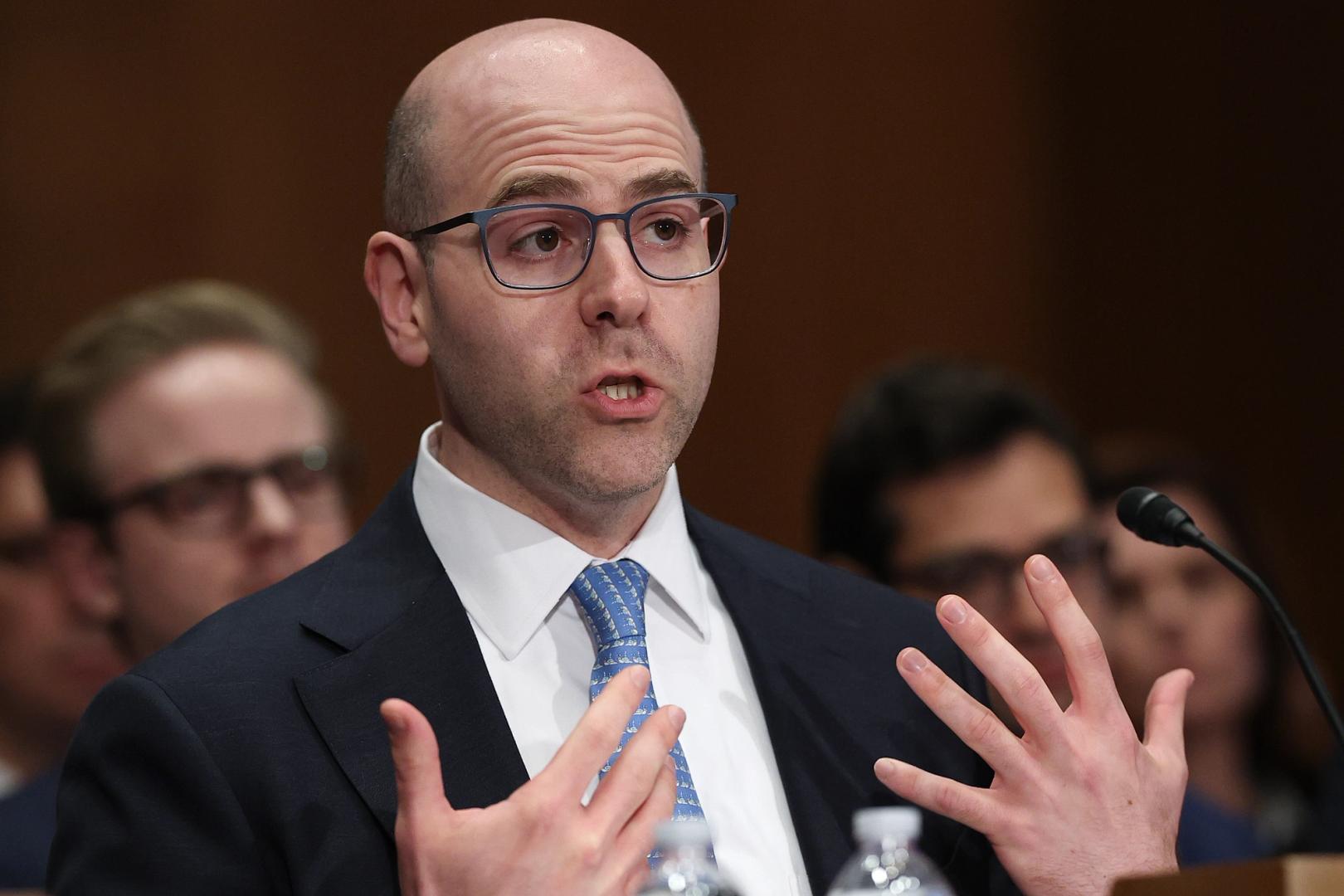The DeFi version of MicroStrategy is born? A $2 million capital gamble and a boardroom battle
Will Leshner turn LQR House into the MicroStrategy of DeFi?
Written by: TechFlow
LQR House, a publicly traded liquor retailer located in Miami Beach, Florida, has not been doing well lately.
On July 14, 2025, documents from the U.S. Securities and Exchange Commission (SEC) showed that Compound founder Robert Leshner used his personal funds to purchase approximately 600,000 shares of Nasdaq-listed company LQR House Inc. (LQR), with a shareholding ratio of 56.9%, making him the largest shareholder.
According to the Form 13D filed, Leshner's total investment was approximately $2.03 million, with some of the shares purchased through Interactive Brokers at $3.77 per share.
The news caused LQR House shares to rise 45% in trading on Monday and reached $10 before the close of trading on Wednesday, a three-fold increase from the purchase price.
However, Leshner's acquisition was not smooth sailing, and soon a capital offensive and defensive drama over control was staged with the board of directors.
The battle of control and anti-control
"I purchased a controlling stake in $YHC, a liquor company with a low market value and a somewhat shady history. My plan is to replace the board of directors and help the company explore new strategies." On July 14, Leshner revealed his "intention to change people" on the day of the SEC announcement and reminded retail investors of the risks: "I have not done extensive due diligence, and there are signs that the company is plotting something fishy. But please be extra careful with any low-market-value company. I could lose all my investment, and so could you."
According to the SEC filing, Leshner plans to propose the removal of all current board members and nominate a new team of directors, either by written consent or by convening a special meeting of shareholders, in accordance with the company's articles of association and Nevada law.
Leshner also stressed that no specific agreements have been reached with other shareholders or third parties, but further communication and collaboration with relevant parties in the future is not ruled out.
However, Leshner's plan seemed to have hit a snag.
On July 14, LQR House submitted a supplement to its prospectus to the SEC. According to the document, LQR House stated that it would increase the number of shares that could be offered and sold through sales agents to US$46 million, which does not include US$2,700 worth of shares sold under the ATM agreement as of the date of the supplement.
Normally, ATM additional issuance is a flexible means of financing for listed companies, but at the current sensitive moment, it obviously has a deeper meaning.
After reading the supplementary materials, Leshner said: "I disagree with LQR House's approach to ATM issuance (selling stocks). I think it is ineffective and I am consulting a lawyer." The next day, on July 15, LQR House shareholder Kingbird Ventures LLC filed a lawsuit in a Florida court, accusing CEO Sean Dollinger and board members of abusing fiduciary responsibilities, misappropriating assets, and violating the company's articles of association; and requested the court to freeze certain share changes, suspend the board of directors' power, and prevent "control hijacking."
If the court rules for a temporary restraining order (TRO) or injunction, Leshner's plan to call a special shareholder meeting to remove the current directors could be temporarily shelved.
In addition, according to sources, the company may try to fight back with a "poison pill." The so-called "poison pill plan" means that when a shareholder's shareholding ratio reaches or exceeds the preset "trigger line," the company will automatically issue new shares to other shareholders (excluding the acquirer) at a significantly discounted price, thereby diluting the acquirer's shareholding ratio, increasing the acquisition cost, or even forcing it to give up.
But Leshner's supporters aren't far behind.
On July 16, 2025, Makesy Capital announced the acquisition of 0.1% of LQR House's shares and pledged to support Leshner's reforms. At the same time, Makesy Capital also launched an online campaign against LQR House CEO Sean Dollinger, saying that this would serve as a warning to CEOs of listed companies who treat the public market and the investing public as private piggy banks.
As of press time, this battle of control and counter-control is still going on intensely, with both sides cautiously testing the waters, guarding against the possibility that any careless decision may have negative effects.
Why LQR House?
LQR House is a Nasdaq small-cap company whose market value was once less than $3 million. Even after its recent surge, its current market value is only around $11 million.
At first glance, this looks like a speculative game of a micro-cap concept stock, but the entry of Robert Leshner offers another possibility.
As the founder of Compound, Leshner was once a pioneer in on-chain finance. He led Compound to set off the DeFi lending trend, and has also actively explored the combination of DAO and RWA in the past two years. As crypto capital continues to seek deep integration with traditional markets and crypto stocks are rising, this DeFi pioneer with a technical background chose to bet on LQR House. There may be three reasons:
First, the identity of a listed company. LQR House has the qualification to be listed on Nasdaq, and the compliance channel has been opened. For crypto players who want to get involved in the traditional capital market, this type of "lightweight" listed company has unique strategic value. Bypassing the high costs required for IPO or SPAC, with the help of the ready-made capital market channel, it is easier to become a springboard for funds, trust and voice.
Secondly, the threshold for controlling shares is low and the equity structure is loose. LQR House has dispersed equity and a small circulating stock, which makes it easy for external capital to quickly gain control. This is very attractive to investors who want to build a cross-border capital platform. Leshner used $2.03 million to acquire 56.9% of the controlling stake, which is far more cost-effective than most capital operation cases.
Finally, the company itself has made initial contact with the crypto business. According to CoinDesk, LQR House announced that it would inject $1 million in Bitcoin into its treasury and enable crypto payment services. This means that it has taken a step forward in connecting digital assets with traditional retail, and has the foundation to expand into the crypto capital ecosystem.
Is a Compound version of MicroStrategy coming?
Since MicroStrategy included Bitcoin in its balance sheet and SBET became the new darling of the stock market, the global capital market has been swept by the trend of "listed companies holding cash."
The question that the market is most concerned about is: Will Leshner turn LQR House into the MicroStrategy of the DeFi field? Will he incorporate $COMP or even crypto lending business into LQR House to form a new asset reserve and capital operation model?
Of course, there is one thing that may be overlooked by everyone. In addition to being the founder of Compound, Leshner’s latest title is the founder of Superstate.
Superstate, a company founded in 2023, is targeting the track of on-chain funds and compliant tokenized assets.
Unlike Compound, which is aimed at pure DeFi users, Superstate is committed to providing institutional investors with traditional asset funds based on blockchain. Its first product is a tokenized version of the "Short-Term U.S. Treasury Bond Fund", and its service targets directly the traditional financial market.
The keywords that Superstate has always emphasized are: on-chain compliance, asset tokenization, and institution-friendly. Its ambition is to open up the connection channel between traditional finance and on-chain assets.
This may be Leshner's potential layout direction for LQR House.
As a ready-made Nasdaq listing platform, LQR House has a "ticket" to the traditional financial market and can provide a display window for the public capital market for Superstate's compliant products, RWA business or on-chain funds.
The combination of the two means that it is possible to create a "listing platform under Superstate", use the public market to attract on-chain products, and provide a legal and compliant secondary market channel for Superstate's fund raising.
In addition, LQR House has previously been involved in crypto payments and digital asset layout, and can also serve as a "test field" for Superstate products or a channel for ecological application landing.
This is slightly different from the logic of MicroStrategy writing Bitcoin into its financial statements and SharpLink Gaming reserving Ethereum. What Leshner may want to do is to embed on-chain funds and tokenized assets into the capital operations of listed companies.
Truly bring "on-chain capital" into the traditional financial framework and create a compliant DeFi-TradFi linkage model.
This will be a deeper experiment.
It is not only a story of holding currency, but also a story of capital.
You May Also Like

U.S. Fed's Miran Says Policy Needs to Adjust to Stablecoin Boom That Could Reach $3T

Dogecoin Price Prediction For 2025, As Analysts Call Pepeto The Next 100x
